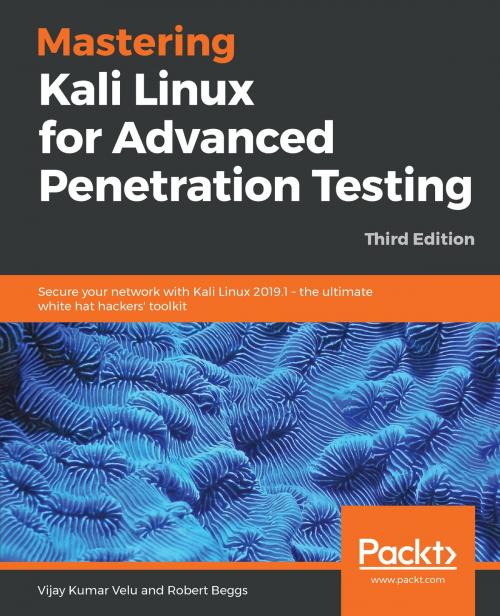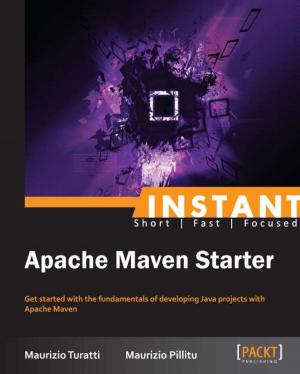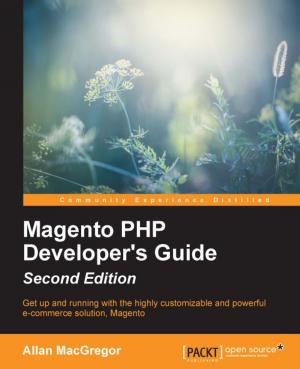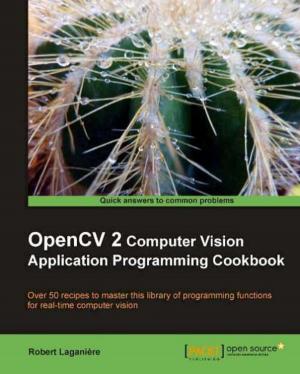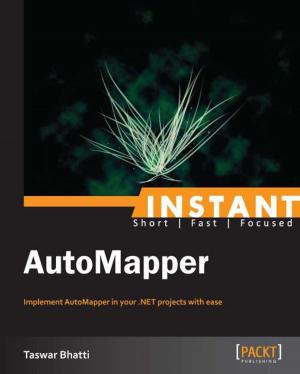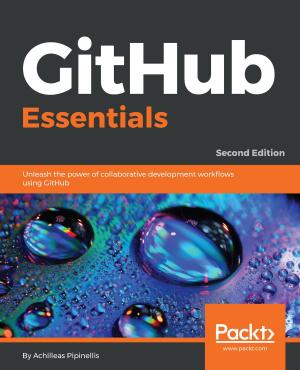Mastering Kali Linux for Advanced Penetration Testing
Secure your network with Kali Linux 2019.1 – the ultimate white hat hackers' toolkit, 3rd Edition
Nonfiction, Computers, Networking & Communications, Computer Security, Operating Systems, Application Software| Author: | Vijay Kumar Velu, Robert Beggs | ISBN: | 9781789340617 |
| Publisher: | Packt Publishing | Publication: | January 30, 2019 |
| Imprint: | Packt Publishing | Language: | English |
| Author: | Vijay Kumar Velu, Robert Beggs |
| ISBN: | 9781789340617 |
| Publisher: | Packt Publishing |
| Publication: | January 30, 2019 |
| Imprint: | Packt Publishing |
| Language: | English |
A practical guide to testing your infrastructure security with Kali Linux, the preferred choice of pentesters and hackers
Key Features
- Employ advanced pentesting techniques with Kali Linux to build highly secured systems
- Discover various stealth techniques to remain undetected and defeat modern infrastructures
- Explore red teaming techniques to exploit secured environment
Book Description
This book takes you, as a tester or security practitioner, through the reconnaissance, vulnerability assessment, exploitation, privilege escalation, and post-exploitation activities used by pentesters.
To start with, you'll use a laboratory environment to validate tools and techniques, along with an application that supports a collaborative approach for pentesting. You'll then progress to passive reconnaissance with open source intelligence and active reconnaissance of the external and internal infrastructure. You'll also focus on how to select, use, customize, and interpret the results from different vulnerability scanners, followed by examining specific routes to the target, which include bypassing physical security and the exfiltration of data using a variety of techniques. You'll discover concepts such as social engineering, attacking wireless networks, web services, and embedded devices.
Once you are confident with these topics, you'll learn the practical aspects of attacking user client systems by backdooring with fileless techniques, followed by focusing on the most vulnerable part of the network – directly attacking the end user. By the end of this book, you'll have explored approaches for carrying out advanced pentesting in tightly secured environments, understood pentesting and hacking techniques employed on embedded peripheral devices.
What you will learn
- Configure the most effective Kali Linux tools to test infrastructure security
- Employ stealth to avoid detection in the infrastructure being tested
- Recognize when stealth attacks are being used against your infrastructure
- Exploit networks and data systems using wired and wireless networks as well as web services
- Identify and download valuable data from target systems
- Maintain access to compromised systems
- Use social engineering to compromise the weakest part of the network - the end users
Who this book is for
This third edition of Mastering Kali Linux for Advanced Penetration Testing is for you if you are a security analyst, pentester, ethical hacker, IT professional, or security consultant wanting to maximize the success of your infrastructure testing using some of the advanced features of Kali Linux. Prior exposure of penetration testing and ethical hacking basics will be helpful in making the most out of this book.
A practical guide to testing your infrastructure security with Kali Linux, the preferred choice of pentesters and hackers
Key Features
- Employ advanced pentesting techniques with Kali Linux to build highly secured systems
- Discover various stealth techniques to remain undetected and defeat modern infrastructures
- Explore red teaming techniques to exploit secured environment
Book Description
This book takes you, as a tester or security practitioner, through the reconnaissance, vulnerability assessment, exploitation, privilege escalation, and post-exploitation activities used by pentesters.
To start with, you'll use a laboratory environment to validate tools and techniques, along with an application that supports a collaborative approach for pentesting. You'll then progress to passive reconnaissance with open source intelligence and active reconnaissance of the external and internal infrastructure. You'll also focus on how to select, use, customize, and interpret the results from different vulnerability scanners, followed by examining specific routes to the target, which include bypassing physical security and the exfiltration of data using a variety of techniques. You'll discover concepts such as social engineering, attacking wireless networks, web services, and embedded devices.
Once you are confident with these topics, you'll learn the practical aspects of attacking user client systems by backdooring with fileless techniques, followed by focusing on the most vulnerable part of the network – directly attacking the end user. By the end of this book, you'll have explored approaches for carrying out advanced pentesting in tightly secured environments, understood pentesting and hacking techniques employed on embedded peripheral devices.
What you will learn
- Configure the most effective Kali Linux tools to test infrastructure security
- Employ stealth to avoid detection in the infrastructure being tested
- Recognize when stealth attacks are being used against your infrastructure
- Exploit networks and data systems using wired and wireless networks as well as web services
- Identify and download valuable data from target systems
- Maintain access to compromised systems
- Use social engineering to compromise the weakest part of the network - the end users
Who this book is for
This third edition of Mastering Kali Linux for Advanced Penetration Testing is for you if you are a security analyst, pentester, ethical hacker, IT professional, or security consultant wanting to maximize the success of your infrastructure testing using some of the advanced features of Kali Linux. Prior exposure of penetration testing and ethical hacking basics will be helpful in making the most out of this book.
